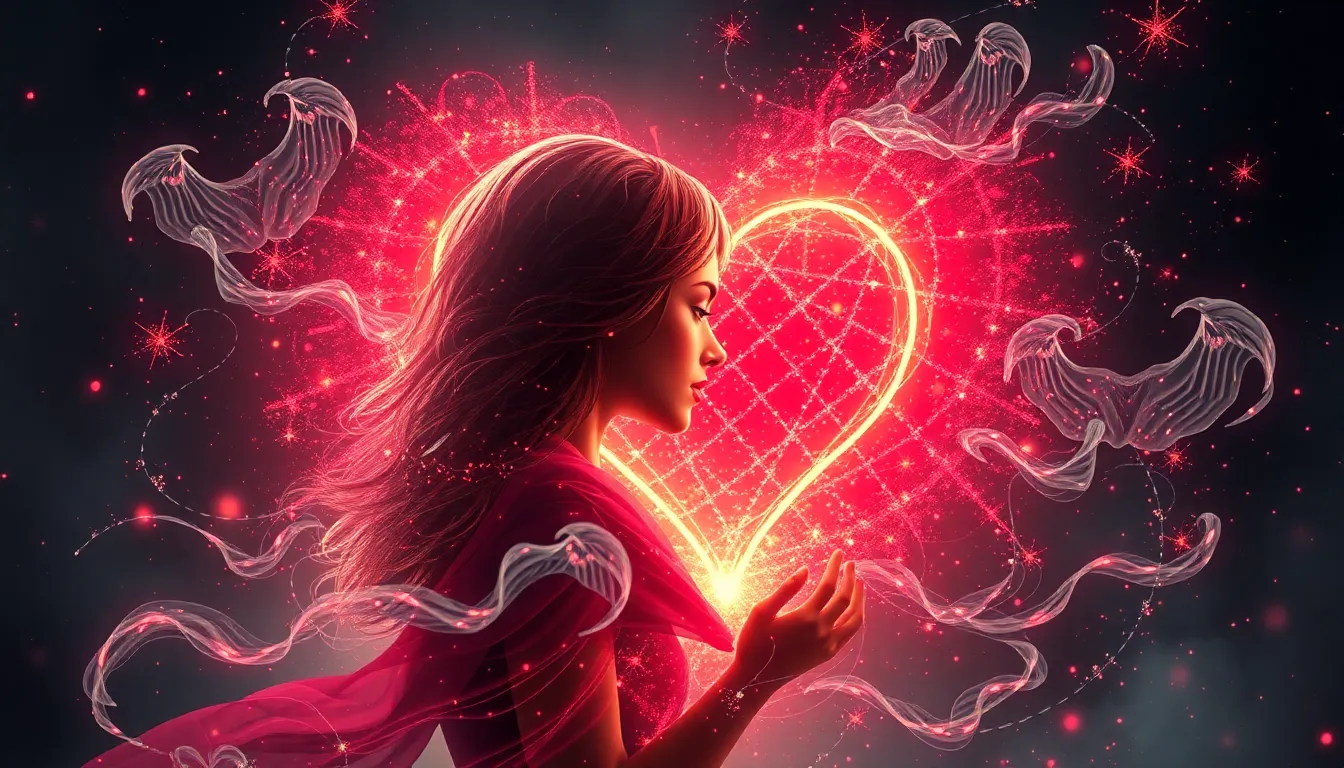The Power of Love: Transformative Myths of Affection
Introduction: Understanding Love’s Transformative Power
Love is a multifaceted emotion that transcends cultural boundaries and historical timelines. It can be defined as a profound affection for someone or something, characterized by care, attachment, and attraction. Across various cultures, love has been celebrated, mythologized, and revered, reflecting its significance in human life. This article aims to explore the transformative power of love through historical perspectives, cultural variations, psychological insights, and modern interpretations. Understanding love’s impact is essential as it shapes not only individual lives but also societal norms and values.
Historical Perspectives on Love Myths
Throughout history, love has been a central theme in myths and legends. Ancient Greek and Roman mythology is rich with stories celebrating love, such as the tale of Eros and Psyche, which illustrates the trials and tribulations of love and the ultimate reward of union. Similarly, myths like that of Orpheus and Eurydice highlight love’s power over death and the lengths one would go to for love.
The evolution of love myths continues through the medieval period, where courtly love arose, emphasizing chivalry and noble ideals. The Renaissance brought a renewed interest in human emotion, leading to romantic expressions in literature and art. In modern times, love myths have adapted to reflect contemporary values, often focusing on personal fulfillment and self-love, showcasing the dynamic nature of love through the ages.
Cultural Variations in Love Myths
Love stories vary widely across cultures, illustrating unique societal values and beliefs. For instance, in Indian mythology, the love between Radha and Krishna symbolizes divine love and devotion, while the tragic story of Heer and Ranjha from Punjabi folklore highlights the enduring pain of love thwarted by societal norms.
In Chinese culture, the legend of Niulang and Zhinu (the Cowherd and the Weaver Girl) transcends mere romance, representing the annual reunion of lovers separated by the Milky Way, emphasizing the importance of love and family. African folklore also presents powerful love narratives, such as the story of Shaka Zulu and his beloved Nandi, which reflect the intersection of love with cultural heritage and history.
Psychological Insights: The Science of Love
Psychological research has delved into the complexities of love, offering various theories to explain its nature. Attachment theory, for example, posits that the bonds formed in early childhood can influence our capacity for love and intimacy in adulthood. Understanding these dynamics can reveal how love serves as a foundation for emotional well-being and personal transformation.
- Attachment Styles: Secure, anxious, and avoidant styles influence how individuals experience love.
- Biological Factors: Neurotransmitters like oxytocin and dopamine play significant roles in the feelings associated with love.
- Love and Resilience: Experiencing love can enhance one’s ability to cope with stress and adversity.
Love as a Catalyst for Change: Personal Stories
Real-life examples abound of individuals transformed by love. For instance, a person who overcame addiction often credits their partner’s unwavering support as a turning point. Another anecdote features a woman who, after experiencing profound loneliness, found companionship that reignited her passion for life, leading her to pursue her dreams.
These stories illustrate that love can foster resilience, inspire change, and lead to personal growth. Love acts as a catalyst, encouraging individuals to embrace their potential and navigate life’s challenges.
The Role of Love in Literature and Art
Love has been a driving force in literature and art throughout history. Classic novels like “Pride and Prejudice” by Jane Austen explore the complexities of love and societal expectations. Poetry, from the sonnets of Shakespeare to the passionate verses of Pablo Neruda, captures love’s essence in all its forms.
Art movements have also been influenced by love, with Romanticism emphasizing emotion, nature, and the sublime experiences of love. Today, love continues to inspire artists and writers, serving as a timeless theme that resonates with audiences worldwide.
Love and Its Connection to Identity
Love plays a crucial role in shaping individual and collective identities. Relationships often influence how we perceive ourselves and our place in the world. The intersection of love with gender and sexuality highlights how societal norms can impact personal identity.
- Gender Dynamics: Love can reinforce or challenge traditional gender roles.
- Sexuality: The acceptance of diverse love expressions can empower individuals to embrace their identities.
- Family Structures: Love within families shapes our understanding of belonging and support.
Modern Myths of Love in Popular Culture
Contemporary love myths are prevalent in film, television, and music. Movies often portray idealized versions of love, from romantic comedies to heartfelt dramas, shaping public perceptions of relationships. The rise of social media has further transformed how love is expressed and understood, creating platforms for connection but also introducing new challenges.
Popular songs frequently celebrate love, encapsulating emotions that resonate with listeners, while also reflecting societal changes in attitudes toward love and relationships.
Challenges to Love: Navigating Modern Relationships
Despite love’s transformative power, modern relationships face numerous challenges. The influence of technology can both connect and isolate individuals, leading to difficulties in maintaining intimacy. Long-distance relationships, while viable, require significant effort and communication to flourish.
To navigate these challenges, individuals can adopt various strategies:
- Communication: Open and honest dialogue is essential for understanding and connection.
- Quality Time: Prioritizing shared experiences can strengthen bonds.
- Emotional Support: Being there for one another during difficult times fosters resilience.
Conclusion: The Enduring Legacy of Love Myths
Love myths have stood the test of time, reflecting humanity’s quest for connection and understanding. Their enduring nature highlights love’s relevance in both personal and societal contexts. As we navigate the complexities of modern relationships, embracing love as a transformative force can lead to profound personal growth and societal change. Ultimately, love remains a powerful and essential aspect of the human experience, inviting us to explore its depths and celebrate its transformative power.



